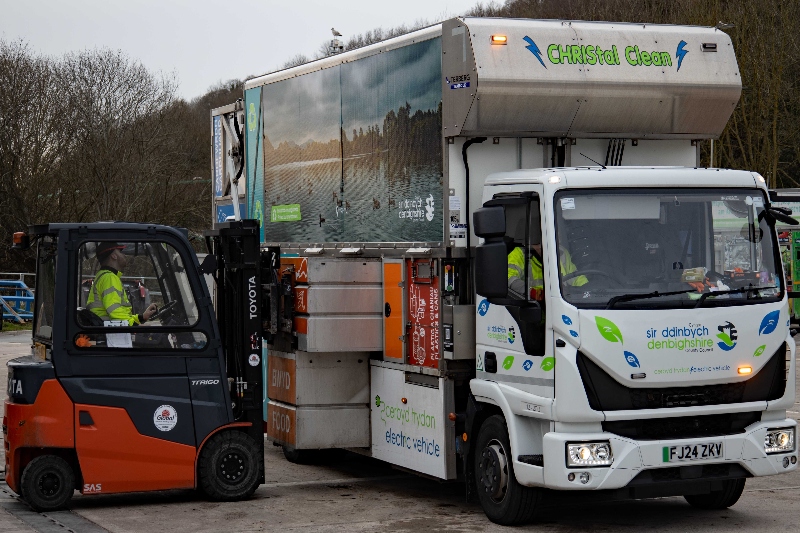A local authority’s commitment to greener waste collection has delivered carbon savings equivalent to the weight of a fully loaded jumbo jet.


Around 15% of Denbighshire County Council’s waste collection fleet is now electric-powered, operating on routes best suited to electric vehicle (EV) technology. Since 2022, the fleet has been progressively upgraded to reduce emissions and support the council’s wider carbon reduction goals.
In early 2023, two Dennis Eagle e-Collect refuse collection vehicles were deployed on northern county routes. Each can cover up to 100 miles and complete 1,000 bin lifts on a single charge, offering long-term cost efficiencies through lower running costs and reduced maintenance compared with diesel models.
Over the past 18 months, the fleet has also welcomed five Electra e-Cargo refuse recycling lorries. With a range of up to 155 miles, these vehicles deliver greener, lower-cost miles and reduced maintenance requirements. They are easily recognisable on the road, with each one named – “Christal Clean” being a familiar sight to residents.
Collectively, the council’s electric waste fleet has saved 409,493 kg of CO2 compared with diesel equivalents. That’s roughly the same as:
• A fully loaded Boeing 747 or Airbus A380
• 67 fully grown male African elephants
• Four Flying Scotsman steam locomotives
Cllr Barry Mellor, Lead Member for Environment and Transport, said: ‘We have looked hard at our overall fleet to see where we can reduce emissions through electric vehicles by introducing them to replace end-of-life stock and through funding support. Waste is an important service, and these EV lorries are integral to helping reduce carbon emissions their fleet produces on a daily basis.
‘Our fleet department is constantly monitoring suitable ways for service delivery to reduce our vehicle carbon footprint, and the use of these EVs is a prime example – also helping reduce long-term costs compared to fossil fuel vehicles.’
Sign up here to receive our free weekly news bulletin and quarterly e-book.